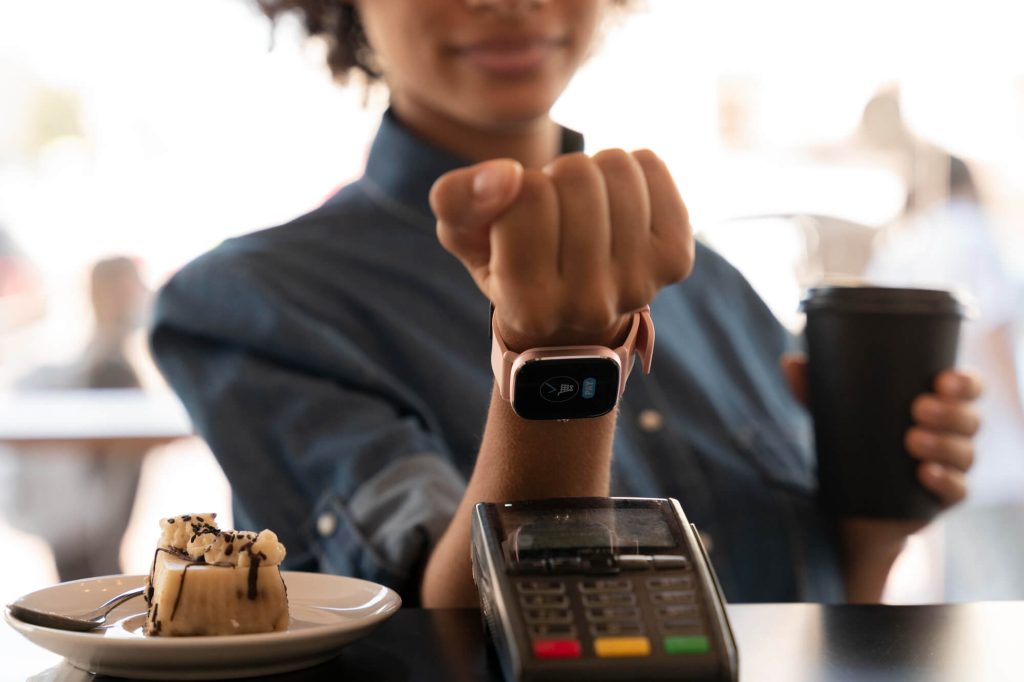Current Trends Shaping Payment Innovation
The following are some ongoing trends that are shaping the payment innovation:
Contactless Payments and Beyond
Today, contactless payment, such as Near Field Communication (NFC) based tap and pay, is common. Services like Apple Pay, Google Pay and wearables enable users to make payments so easily and very fast through a single touch. The next step in this area is to introduce biometrics, where payments can be made using fingerprints or a person’s face. A study conducted by Juniper Research also pointed out that biometric authentication will be used to secure over $2.5 trillion worth of online payment transactions within the 2024 financial year.
Digital Currencies and Cryptocurrencies
Cryptocurrency is no longer an obscure concept or one that is only employed by a handful of people. Bitcoin, Ethereum, and other cryptocurrencies, including Central Bank Digital Currencies (CBDC), are being adopted for mainstream use, especially due to blockchain technology. Governments are even considering developing their own central bank digital currencies, which will change the conventional method of making transactions across borders by making them faster and cheaper. Cryptocurrencies can become widely accepted mediums of payment by legal tender using Bitcoin as an illustration of this in El Salvador.
However, challenges like regulatory uncertainty and volatility still hinder widespread adoption. Businesses need to be prepared to accept digital currencies as part of their payment systems.
Real-Time Payments
Speed is now a priority for both businesses and consumers. Traditional banking systems often delay transactions due to verification steps, but real-time payment systems (RTP) promise to reduce these lags. In fact, over 50 countries have already implemented RTP systems, and the U.S. is preparing to launch its FedNow system to streamline real-time payments nationwide.
AI-Powered Fraud Detection
As payment technologies evolve, so do cybercriminals’ tactics. AI and machine learning play a crucial role in detecting fraudulent activities. By analyzing transaction patterns in real time, AI can flag suspicious transactions before they are completed, protecting both consumers and businesses.
Buy Now, Pay Later (BNPL)
BNPL services have exploded in popularity, allowing consumers to split payments over time without using credit cards. Some companies have set the stage for a payment model where consumers can make immediate purchases without upfront full payment, thus increasing purchasing power and boosting sales for businesses. The BNPL market is expected to reach $4 trillion by 2030.
Future of Payment Processing: What to Expect
While these trends shape the present, new developments in tech can further disrupt the flow of global payments and bring a shift in consumer preferences altogether. The following can be expected for the future:
Voice-Powered Payments
Imagine asking your digital assistant to pay your bills or send money without lifting a finger. With companies like Amazon and Google integrating payments into their voice assistants, this technology is set to become more common.
5G-Enabled Payments
As 5G networks roll out globally, the speed and reliability of payment processing will improve. With 5G, payments in remote areas, augmented reality shopping, and real-time peer-to-peer transactions will become faster and more seamless. This will be particularly useful for mobile payments and e-commerce.
OmniPayments’ Role in the Future of Payment Processing
OmniPayments is a leading NonStop system integrator, offering secure and high-performance payment solutions. The kind of services that the company provides include all sectors of the economy, including banks and retailers. The OmniPayments suite is the software solution to meet the ATM, POS, e-commerce, and mobile payments demands for both the present as well as the future.
One of the main products is OmniCloudX, which is a cloud transactional switch solution that helps companies process their payments with better availability while lowering their costs. With the tendency towards cloud-oriented systems and real-time processing, OmniCloudX will be mandatory for companies that are ready to grow at a fast pace focusing on security and reliability.
Further, OmniPayments includes 24/7 managed services for production monitoring around the clock to ensure that businesses around the globe are processing their transactions seamlessly. Employment of their skills in the migration of large payment platforms such as BASE24 reflects their determination to build a sustainable payment structure for their clients.






